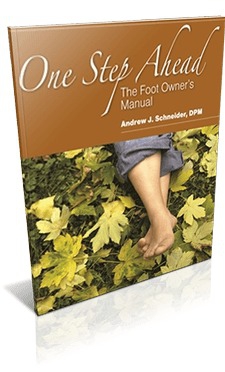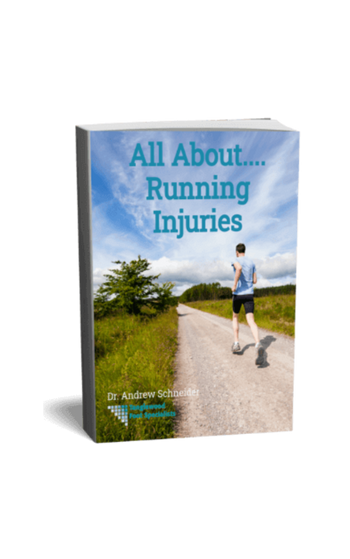 Exercise is supposed to be good for us, so why can it sometimes take such a toll on your feet? Unfortunately, many patients come into our Houston podiatry practice with a confounding problem: they notice tingling or their feet go numb during exercise. Now, numb feet could be a sign of several serious conditions, including peripheral neuropathy. So we know that you may be concerned if you start to notice your feet get numb while walking, running or hitting the spin bike.
Exercise is supposed to be good for us, so why can it sometimes take such a toll on your feet? Unfortunately, many patients come into our Houston podiatry practice with a confounding problem: they notice tingling or their feet go numb during exercise. Now, numb feet could be a sign of several serious conditions, including peripheral neuropathy. So we know that you may be concerned if you start to notice your feet get numb while walking, running or hitting the spin bike.
Since this surprising side effect may have you feeling a little bit panicked, we are using this post to explore what’s behind this particularly annoying type of foot pain. We'll review possible causes of foot numbness during exercise, and make simple suggestions that could eliminate this annoying concern.
Feet Go Numb During Exercise: Possible Causes
Even though the symptom is the same, there are several possible causes for exercise-related foot numbness. One likely reason is that with weight-bearing exercises, your feet can swell, reducing your circulation and causing numbness; exercises that are considered weight-bearing are those where you’re standing, like climbing on the stair master, walking or running or using the elliptical machine. (That's why many people notice their feet go numb when walking on the treadmill.) In addition to decreased circulation, moving your feet in unusual ways or placing too much pressure on any one part of the foot can cause exercise-induced foot pain. Moreover, tight or inflamed muscles from over-exertion could reduce blood flow to your lower extremities, allowing your feet to go numb during exercise.
Now that you know why this problem occurs, let’s learn how to avoid it.
How to Stop Your Feet Going Numb During Exercise
Want to feel all the sensations of your workout without the disruption of numb or tingling feet? Here's what you need to do:
- Get rid of shoes that don't fit.
First of all, choose your shoes carefully—make sure your sneakers are wide enough to give your toes and forefoot space without being so loose that they become unsupportive. You may need to choose exercise shoes that are up to a half size larger than your normal footwear in order to prevent pressure and avoid numbness in your feet during a workout.
2. Choose your shoe style wisely.
Your feet tend to spread out a bit when they hit the ground. But some people like to wear stability or motion-control shoes during workouts. Unfortunately, these sneaker styles tend to be more rigid, and can't accommodate minor foot spread or swelling. So, if you notice your feet go numb during exercise, and you've been wearing motion control running shoes like Kuru Footwear, you may need to select a different sneaker style.
3. Check your lacing style.
Sometimes, simply loosening up your shoe laces can help restore sensation if you notice numb feet during a work out. After all, tying your laces too tightly can interfere with circulation. Even if laces are tied loosely, trying different lacing techniques could help improve sensation in your feet during physically strenuous activities.
4. Check your form.
When you’re on cardio equipment like the elliptical, spin bike or stair climber, try to keep your whole foot on the pedal, so that your body’s weight is evenly distributed and no one part of the foot is left to absorb all the impact of your efforts. That can help prevent numbness during exercise.
5. Stretch before working out.
As we mentioned earlier, tight joints and muscles can reduce the amount of blood flowing to your feet. In turn, you may notice that your feet go numb during exercise. So, to help prevent this irritating symptom, be sure to stretch your back, knees and calf muscles prior to any kind of work out, but particularly before cardiovascular exercise such as walking, running or cycling.
Help for Feet That Go Numb While Walking
With any luck, these tips should help you keep your feet comfortable while you’re sweating it out in the gym, or on the roads and trails. If, however, you experience persistent foot pain during exercise and stretching or changing your shoes, stride or lacing technique does not help your comfort level, you may have a more serious problem. When foot pain persists, come see Houston podiatrist Dr. Andrew Schneider for expert treatment. Together, we will work to determine the cause of your problem. Afterward, we will come up with a customized solution that will allow you to comfortably return to your favorite activities.















